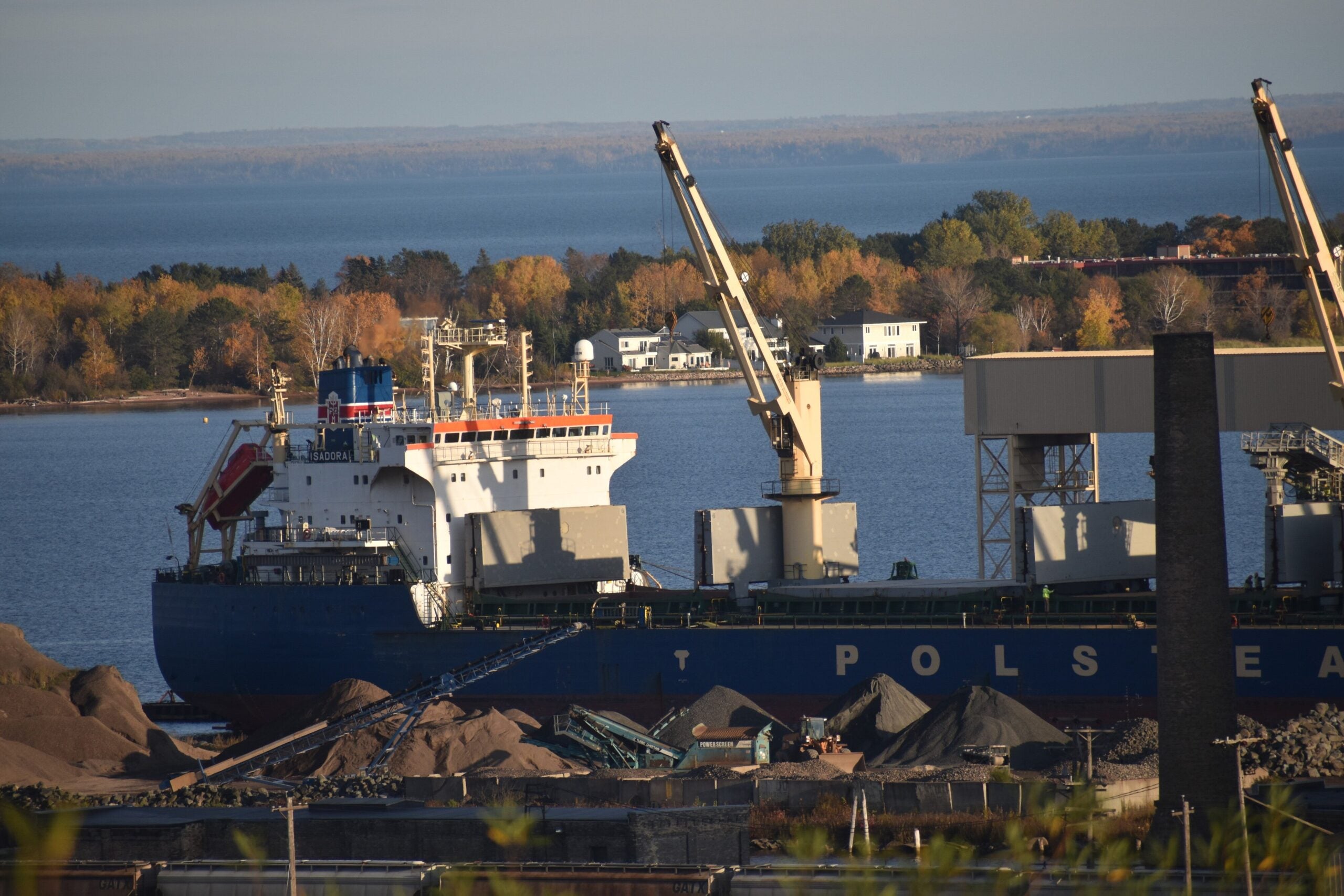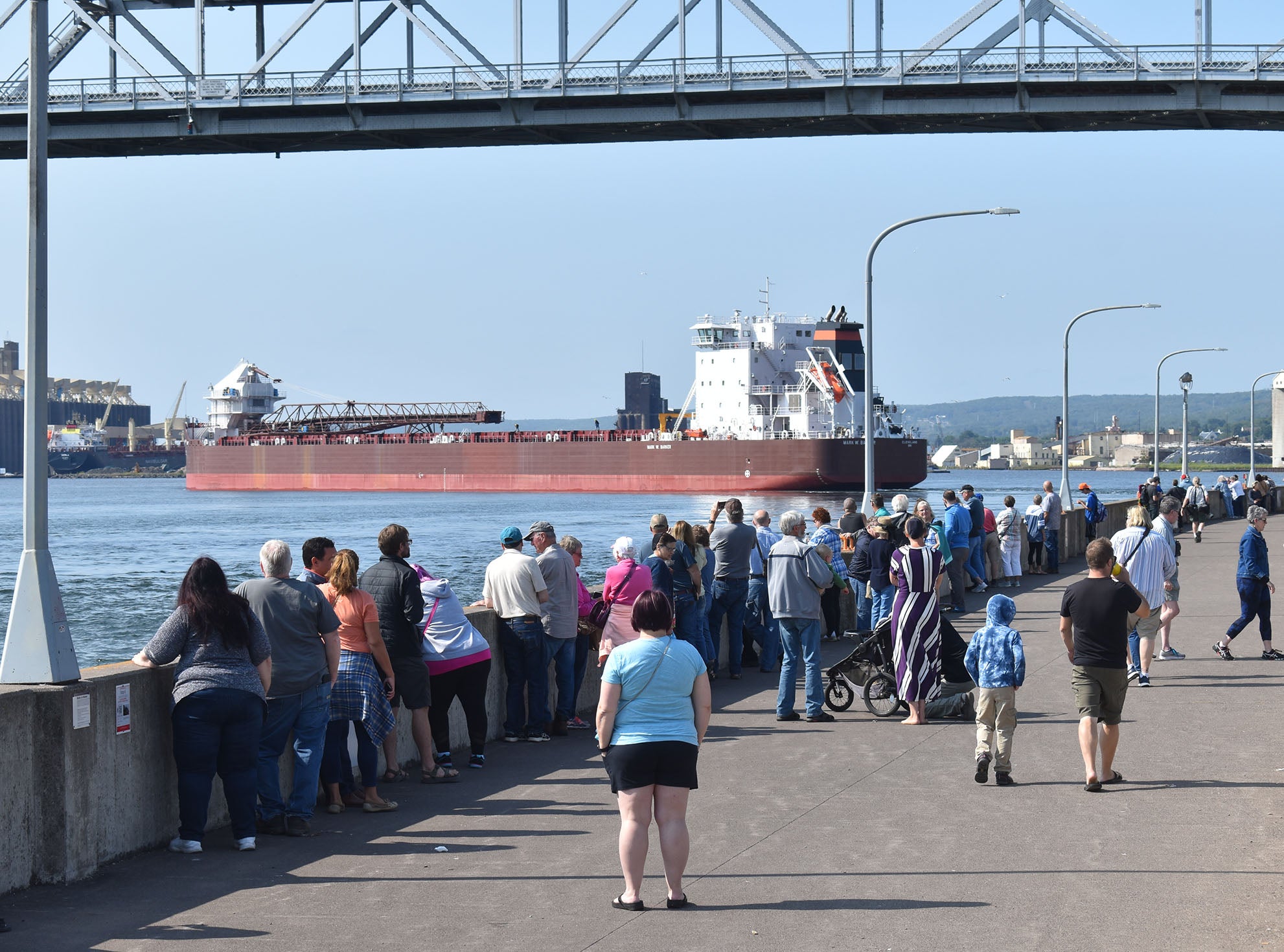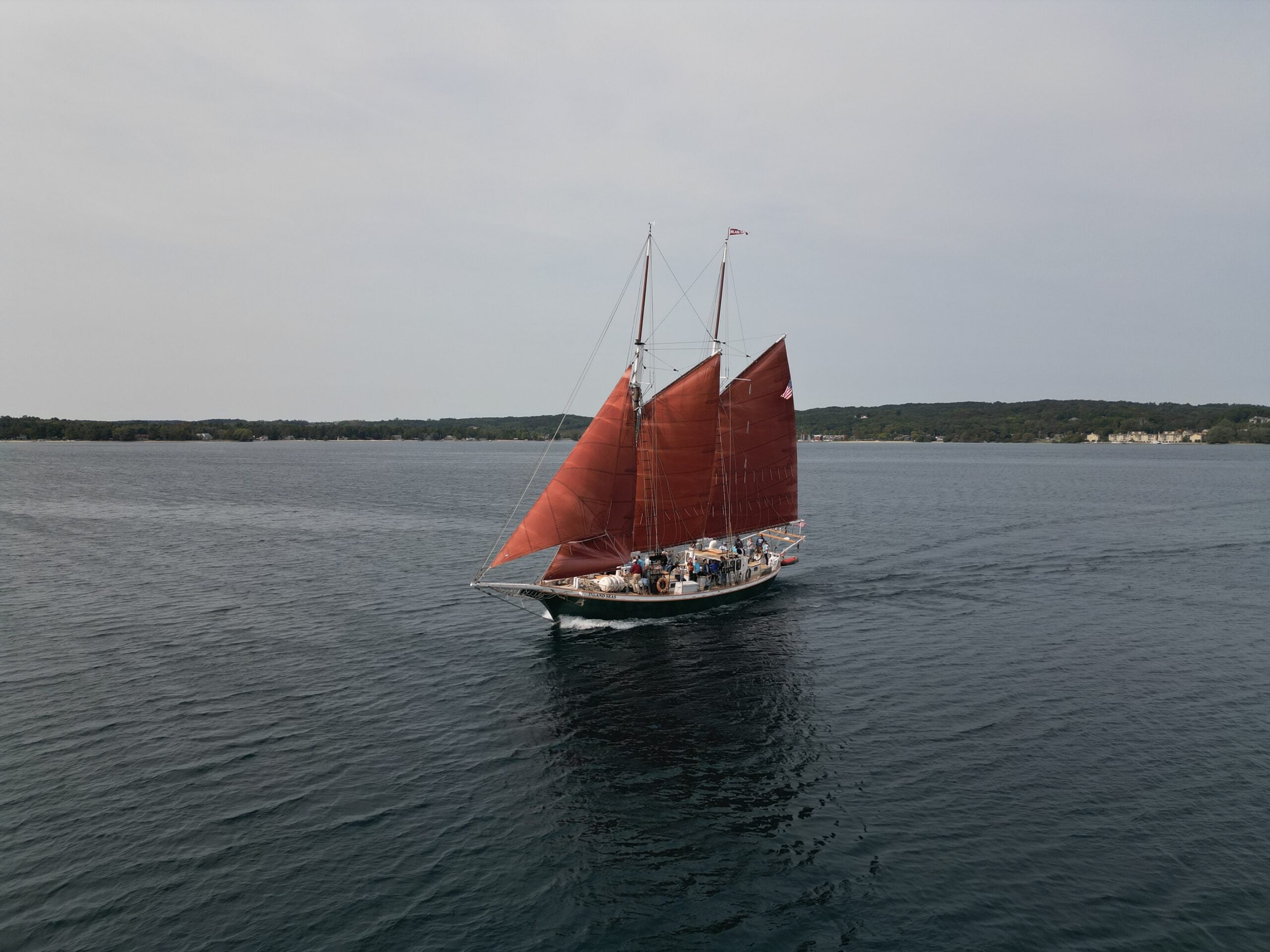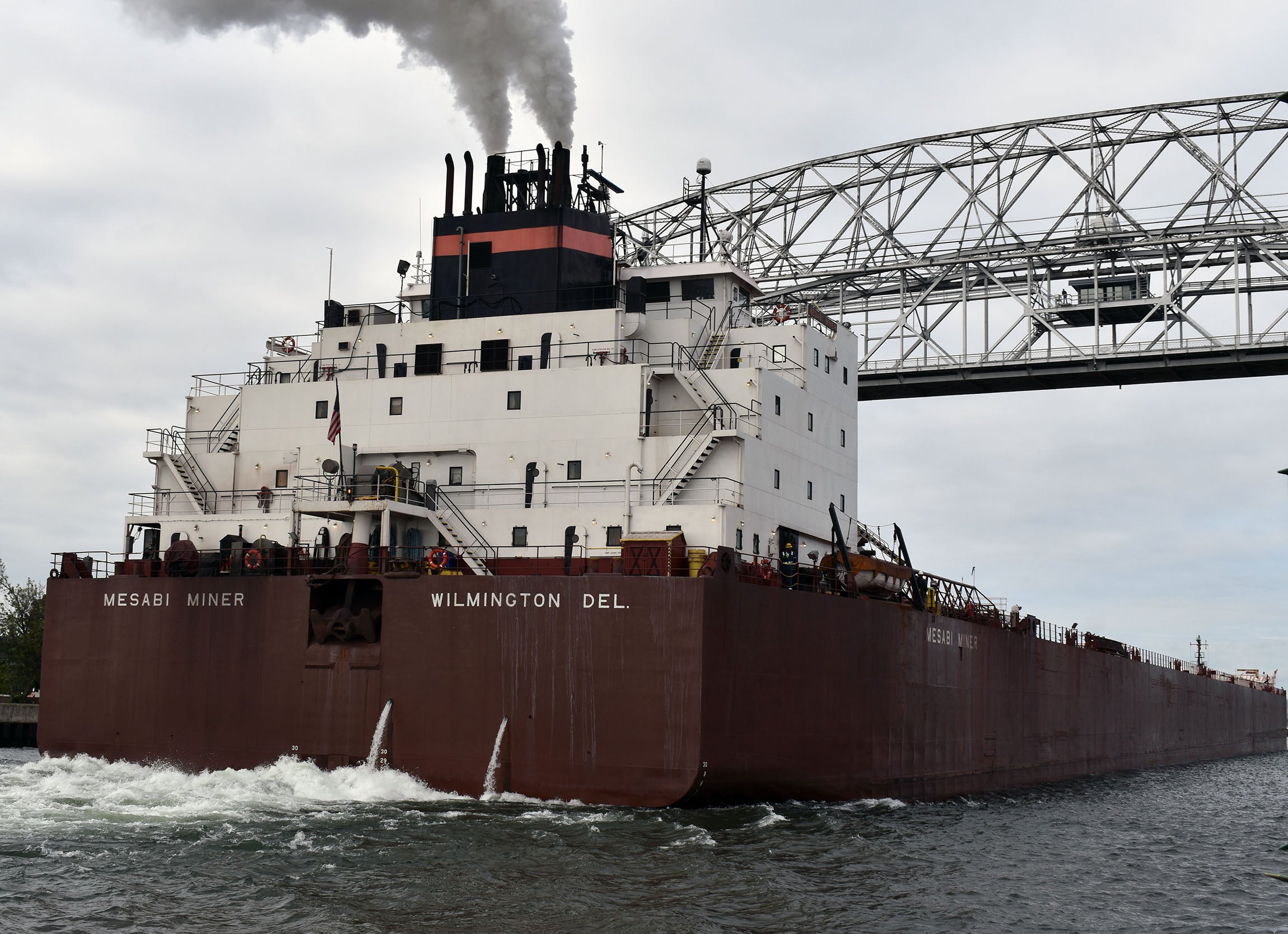A labor strike has shut down a major artery for transporting goods between the Great Lakes and overseas ports, leaving some oceangoing vessels stranded or waiting to enter.
The strike began early Sunday after following a 72-hour notice. Hundreds of unionized workers walked off the job on Canadian portions of the Great Lakes-St. Lawrence Seaway, effectively shutting down the Seaway. It’s the first strike-related closure of the system during the middle of the shipping season since 1968.
The strike followed failed talks between Canada’s largest private sector union, Unifor, and the St. Lawrence Seaway Management Corporation over wage increases. The not-for-profit corporation is responsible for movement of marine traffic through Canadian facilities, which includes 13 of 15 locks between Montreal and Lake Erie.
News with a little more humanity
WPR’s “Wisconsin Today” newsletter keeps you connected to the state you love without feeling overwhelmed. No paywall. No agenda. No corporate filter.
Without workers, ships can’t transit the system that connects Great Lakes ports and the rest of the world. Seaway management said more than 100 vessels are waiting to enter outside the system.
“This interruption of Seaway operation has immediate and longer-term consequences for Great Lakes ports, the entire Seaway System, and countries around the world hungry for our exports, especially now, during peak grain harvest season,” Deb DeLuca, executive director of the Duluth Seaway Port Authority, said in a statement.
Jayson Hron, the port authority spokesperson, said there is just one oceangoing vessel, the Isadora, that was loading cargo in Duluth. It’s scheduled to depart for Algeria.
He said vessels that are docked have to pay a fee, and they still have to pay their workers even if they’re unable to move goods. In the short-term, three or four oceangoing vessels or “salties” are scheduled to arrive in the Port of Duluth-Superior. Hron said those ships already cleared the Welland Canal on the Seaway in Ontario, meaning they should arrive without interruption.
“It’s just a matter of what happens after they load their cargo and depart,” Hron said.
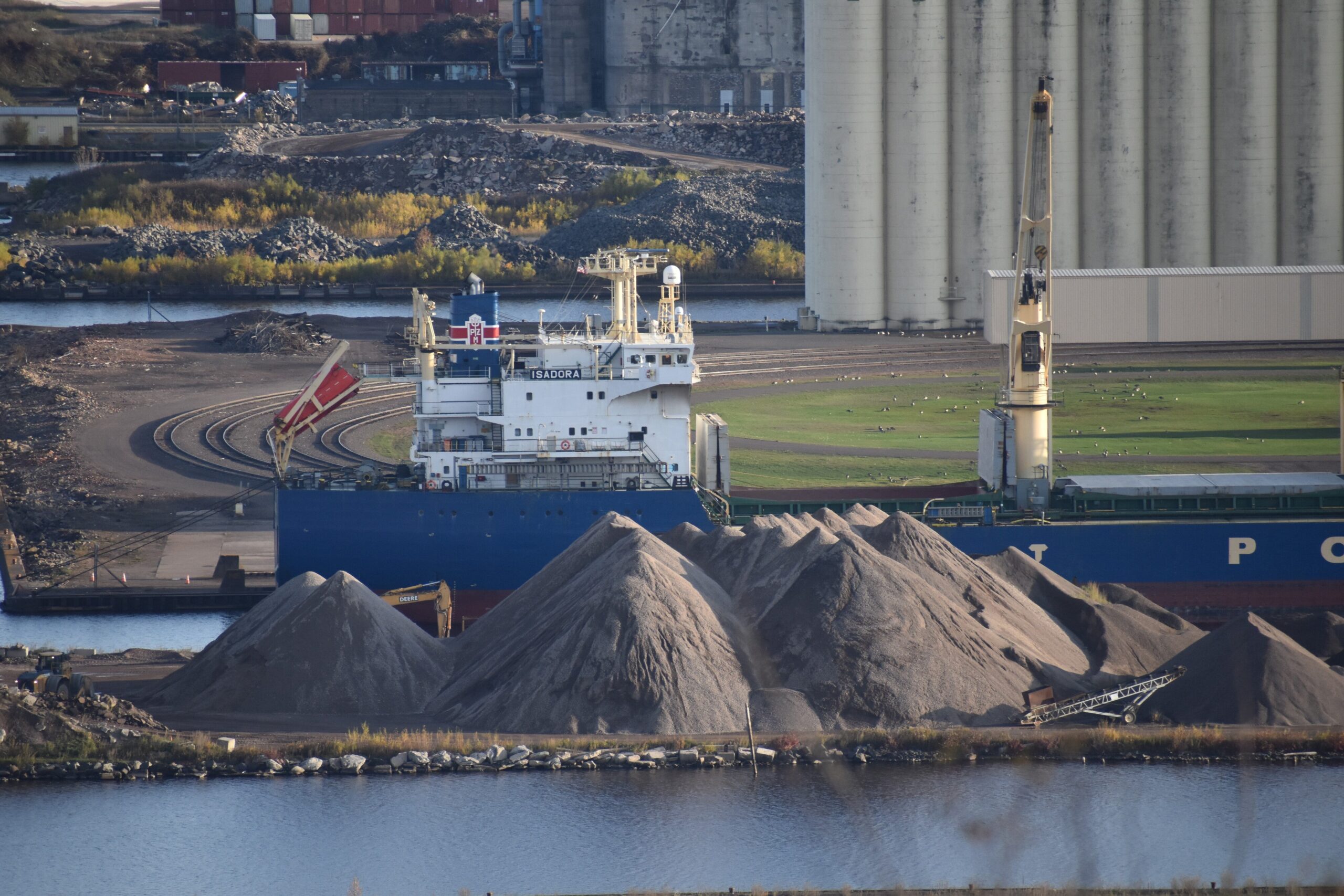
Danielle Kaeding/WPR
Seaway management is asking the Canada Industrial Relations Board to provide non-union workers during the strike to allow grain movement.
“However, there are a number of other cargoes both inbound and outbound, that would not be allowed free passage,” Hron said. “Those are of great concern to us as well.”
Steve Fisher, executive director of the American Great Lakes Ports Association, said the Seaway typically handles a lot of grain at this time of year after crops have been harvested.
“Typically, we would have ships entering the St. Lawrence Seaway at this time heading for Superior to load grain — and Duluth — and those ships can’t get there,” Fisher said. “The farm organizations, the co-ops and the agricultural export organizations are going to have to figure out other ways to export that grain. That’s going to impact Wisconsin farmers.”
The port is already coming off a tough year. It saw the lowest year for grain exports last year since 1890, falling to roughly 644,000 tons. In Milwaukee, a new $40 million facility just opened this summer to move bulk agricultural exports, including dried distillers grains, a byproduct from beer and ethanol production that is used in livestock feed.
Port Milwaukee Director Jackie Q. Carter said no ships are stuck at the port, but she said vessel owners are unlikely to send ships due to costs without any assurance the strike will end.
“For overall impact, about 17 percent of Port Milwaukee vessel traffic occurs in the 4th quarter,” Carter wrote in an email. “A prolonged shutdown could have a negative impact on our tonnage and revenue.”
Nearly 2.3 million tons moved through Port Milwaukee last year. In Duluth-Superior, iron ore made up more than half the 30.3 million tons of cargo handled last year. Those shipments are moved by lake vessels, and Hron said their transit within the Great Lakes remain unaffected.
Even so, Fisher said the shutdown threatens the perception of reliability for those looking to make investments or move products along the Seaway. He said some shipping companies are already trying to reroute ships to East Coast ports and then move product by rail. He added that one vessel operator had said they could lose millions of dollars each day during the strike.
The Duluth Seaway Port Authority said Canadian and U.S. Seaway officials estimated a shutdown could cost the economy $50 to $80 million each day.
A 2020 study by Pennsylvania-based Martin Associates examined the economic effects of an extended closure on the U.S. and Canadian portions of the Seaway tied to high water levels. The analysis estimated a closure of two weeks during the middle of the shipping season would result in the loss of around 19,000 jobs and nearly $1.6 billion in economic activity.
On Tuesday, Unifor issued a statement that the Canadian government has called for mediation to take place between the union and St. Lawrence Seaway Management Corporation on Friday in Toronto.
“Our goal remains to achieve a fair and reasonable collective agreement for those who work along the St. Lawrence Seaway,” Unifor said.
In a release Sunday, Seaway management said Unifor “continues to insist on wage increases inspired by automotive-type negotiations.”
Unifor recently reached a new contract for more than 4,300 workers striking at General Motors. The deal included wage increases of around 20 percent for production workers and 25 percent for those in skilled trades.
Wisconsin Public Radio, © Copyright 2025, Board of Regents of the University of Wisconsin System and Wisconsin Educational Communications Board.

